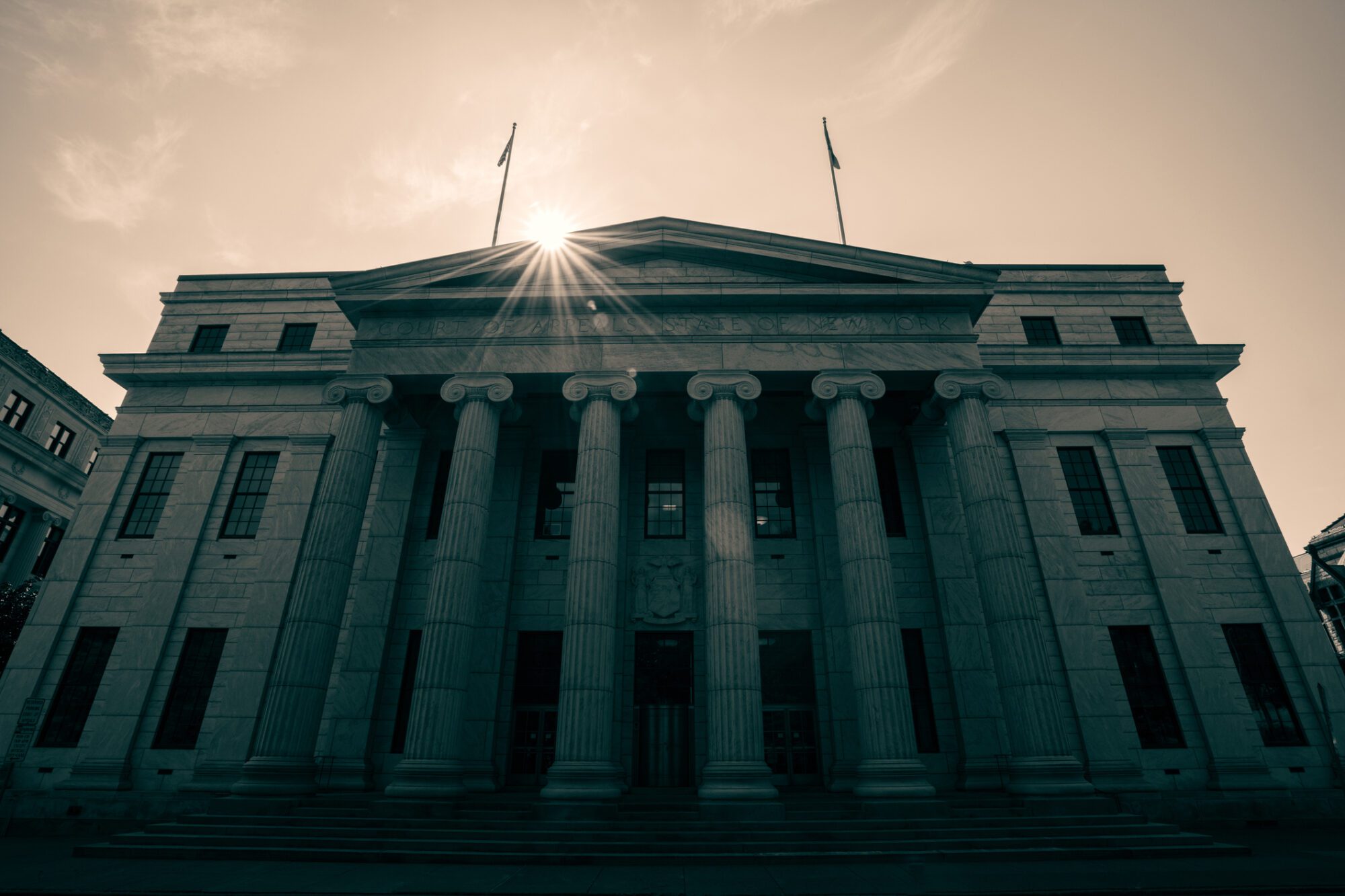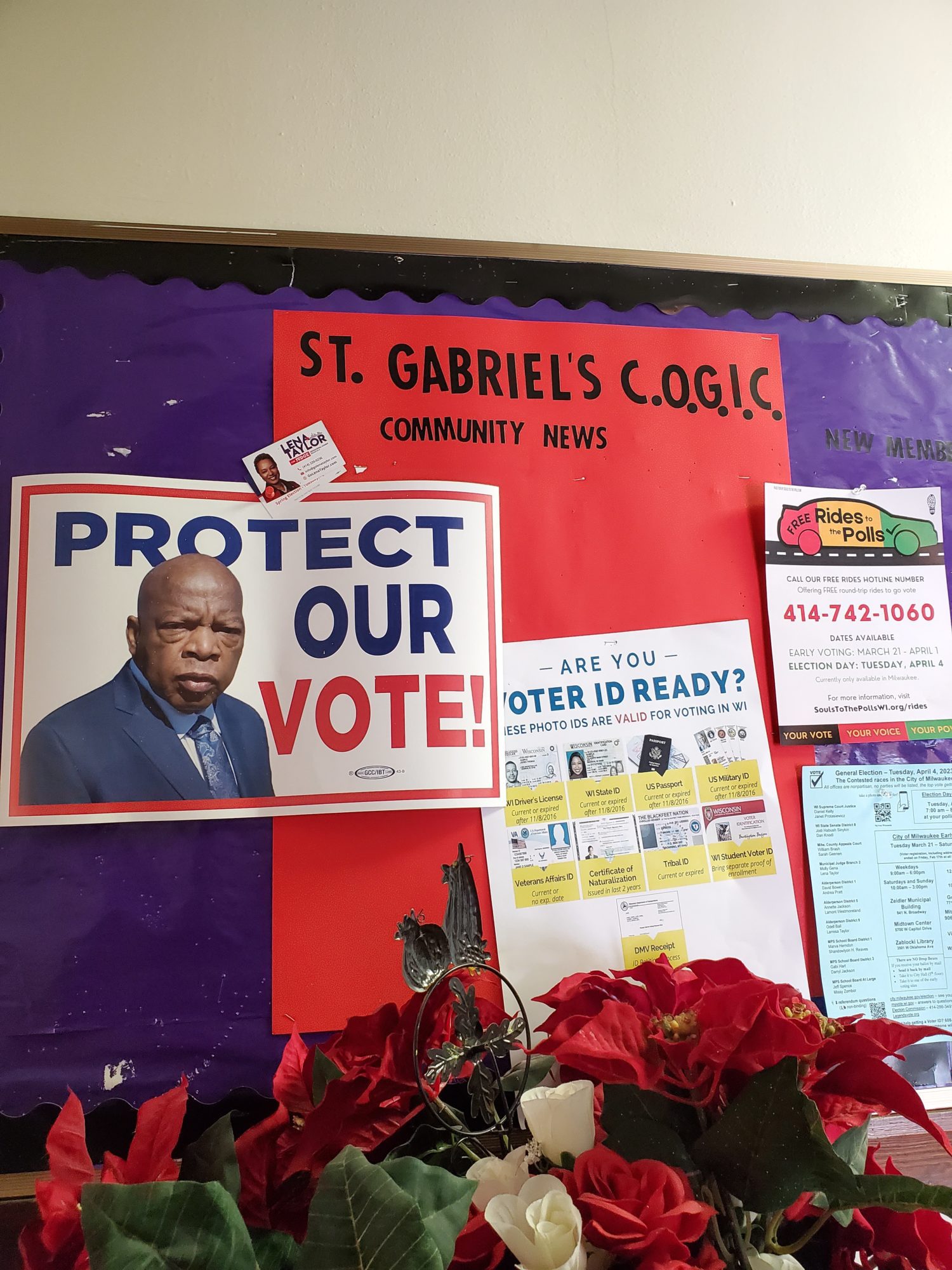New Jersey Is Poised for Its First Ever Public Defender Justice
Governor Phil Murphy nominated Michael Noriega to the state supreme court, amid a nationwide progressive push for more public defenders and civil rights lawyers on the bench.
Chris Geidner | June 6, 2023


Editor’s note: Michael Noriega was confirmed by the state Senate and joined the court on June 30, 2023.
New Jersey Governor Phil Murphy announced last month that he was nominating Michael Noriega, an immigration and criminal-defense lawyer, to the state’s supreme court. If confirmed by the Senate, as seems likely given the reception so far, Noriega would be the Democratic governor’s fourth appointment on the seven-member court.
Noriega would also be the first former public defender to join the New Jersey Supreme Court in the state’s history.
Amol Sinha, executive director of the ACLU of New Jersey, expects this milestone to enrich the court’s deliberations.
“Having someone like Mike Noriega, who has been a public defender, has represented people with lesser means, and has represented immigrant New Jerseyans, will bring necessary perspectives to the court,” he told Bolts. “An increase in diversity on the bench–in terms of race, immigrant history, and professional experience–is powerful.”
In his speech, Murphy didn’t shy away from Noriega’s public defender background, highlighting this work as a key reason for selecting him. “Public defenders see firsthand how the law impacts ordinary people,” Murphy said. “More often than not, they represent individuals from our most marginalized communities in their greatest moment of need.”
“That is an obligation we hold sacred because in America every defendant is guaranteed legal representation regardless of their ability to pay. It doesn’t matter if you’re rich or poor, powerful or powerless,” he added.
He also highlighted Noriega’s background as the child of Peruvian immigrants, praising his life as a “quintessentially Jersey story.” Noriega would be the court’s only Hispanic justice.
Murphy’s selection and words were signs of how quickly the ground is shifting for judicial nominations.
Judicial nominees nationwide and historically are far likelier to have built their career as prosecutors and in corporate law firms than representing indigent defendants. But progressives have called for more professional diversity on the bench and, with particular attention given to judges with experience in public defense and civil rights litigation. President Biden has responded by considerably expanding who makes it on the federal bench, getting more former public defenders confirmed to circuit courts in two years than President Barack Obama did in eight, let alone President Donald Trump.
Justice Ketanji Brown Jackson, Biden’s sole U.S. Supreme Court appointment, is a former public defender, as is Judge Arianna Freeman, the first judge he selected for the U.S. Court of Appeals for the Third Circuit, which covers New Jersey.
Most governors have not followed suit and public defenders are still largely missing from state supreme courts, as Bolts reported last year, but the tide is turning in some states. Governors in Oregon and Washington added public defenders to the bench, and progressives are pushing back elsewhere. New York’s Democratic Governor Kathy Hochul recently saw her judicial nominee Hector LaSalle, a former prosecutor, defeated in the Democratic-led Senate, in part over concerns about his record on criminal justice. Nonetheless, a majority of the members of New York’s highest court are former prosecutors and none have worked as a public defender.
Similarly, in New Jersey, three of the justices are former prosecutors. Noriega would break that streak.
Parimal Garg, the governor’s chief counsel, credits Biden’s work on the issue from before he even took office. Biden stressed to senators that he would be seeking to enhance demographic and professional diversity—including, specifically, public defenders—in his judicial nominations.
“I think if you’re looking at a seven-member body, you really want a court that reflects the totality of the legal profession,” Garg told Bolts, referring to the New Jersey high court. “It’s a recognition of the fact that, if you spent a large part of your career as a public defender, you’re going to have a very different perspective on the criminal justice system than if you had spent the majority of your career as a prosecutor.”
The absence of experiential diversity, he added, can harm the court. Without it, “it becomes challenging for that court to come up with jurisprudence that really understands where everyone is coming from in terms of the different roles that people have to play.”
Jennifer Sellitti, training director at the New Jersey Office of the Public Defender, used to work with Noriega in the Essex County defenders’ office and says she is happy for him personally. She is also glad to see that someone who worked in a public defender’s office may join the supreme court.
“The fact that that Mike Noriega has sat next to a person to whom he was appointed, to whom he had built a relationship of trust and understanding, and handled those kinds of cases before the court, it just gives him a window and a perspective that is something that, quite frankly, up until now our court had been lacking,” she told Bolts.
If confirmed, Noriega would take the seat of Barry Albin, who was seen as a leading liberal voice on the court until he reached the mandatory retirement age of 70 in 2022. Albin worked as a prosecutor early in his career but also had substantial criminal-defense experience—though not public defender experience—before joining the court in 2002. Garg said that Murphy “thought that Mike [Noriega]’s experience and values really made him an ideal successor to Justice Albin.” Among other reasons, Albin had been president of the New Jersey Association of Criminal Defense Lawyers, and Noriega was the association’s president-elect at the time of his nomination.
Albin told Bolts that someone with Noriega’s background will benefit the court. “I believe that Michael Noriega is going to give a different, unique viewpoint—from a person who has mostly specialized in immigration work and criminal defense work,” he said.
“Experience makes a difference,” he added. “Currently on the state supreme court, there are three former assistant United States attorneys.”
Albin said his own work as a criminal defense attorney and other aspects of his career were important to his tenure on the supreme court. “I found that to be very helpful in the discussions that we had on the court. I was able to provide knowledge that other members of the court did not possess. And that was true of other members of the court, who had specialized in other areas of the law, who were able to inform me and others from their perspective,” he said. “That doesn’t mean that other members of the court necessarily assent to whatever somebody else is saying, who may have specialized in a particular area of law, but it certainly informs deliberations on the court, makes discussions much more rich, and much more informative.”
In a rare study of the effects that former public defenders can have on the bench, two political scientists found last year that former public defenders are less likely to sentence people to long prison sentences. In the early stages of the COVID-19 pandemic, the New Jersey Supreme Court issued important decisions that helped relieve the prison population, though it has also taken a cautious approach to issues touching criminal justice.
Adding Noriega’s perspective could be important in future cases likely to come before the court, Sellitti, from the public defender’s office, said.
“I’m really excited about having his voice on the court when it comes to Fourth Amendment issues, cases that involve discussions of race and systemic racism,” she told Bolts, before also mentioning cases that touch police accountability, discovery, and immigration detention.
In some ways, the New Jersey Supreme Court is an easier court than most to advance this changed perspective because the court itself already has, as an essential element of its organization, an appreciation for what Albin called “institutional balance.”
“There is an unwritten rule in New Jersey that there has to be a political balance,” he said. “So there cannot be more than four members of one party on the court at any one time. And that has been respected by every governor” since New Jersey updated and modernized its state constitution in 1947.
What that means in practice is that Murphy has already appointed one Republican to the bench, Justice Douglas Fasciale, and is likely to appoint a second when Justice Lee Solomon reaches the mandatory retirement age of 70 in 2024. Because of this system, virtually all of the lawyers Bolts talked with about the nomination said that New Jersey’s court and nominations tend to be less partisan than at the national level and in other states.
Still, Murphy’s earlier nomination to the court stalled for a very long time. As his first nominee to the court in 2021, the governor chose Rachel Wainer Apter, a former advocate with the ACLU, but a Republican state senator from Apter’s home county blocked her confirmation for more than a year under a convention in the state Senate known as senatorial courtesy, Bolts and The New Jersey Monitor reported last year.
Apter was confirmed in October as part of a deal that also involved the confirmation of Fasciale.
Noriega is unlikely to face similar delays. He has the support from all of his home-county senators, including Republican Jon Bramnick, who is Noriega’s law partner.
The governor’s office says it hopes for quick consideration of Noriega’s nomination in coming weeks, and Garg is looking forward to Noriega’s voice—and experience—being added to the court.
“All of them bring something very different to the table,” he said, “and we think that’s really important.”
Sign up and stay up-to-date
Support us
Bolts is a non-profit newsroom that relies on donations, and it takes resources to produce this work. If you appreciate our value, become a monthly donor or make a contribution.




